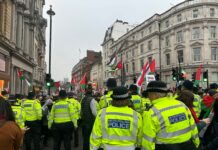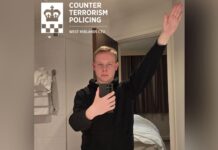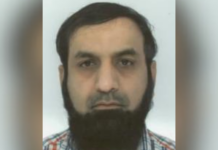The Chief Constable of West Midlands Police, David Thompson, has said he would look into employing officers who wear the burka if the issue arose, as the force tries to increase the percentage of black and minority ethnic (BME) officers in the region to 30 per cent.
The Telegraph reports that West Midlands Police said it has “no barriers” relating to the burka as they announced that they would discuss allowing the traditional Islamic dress to become part of a policewoman’s uniform.
The hijab has been approved as uniform by the Metropolitan Police and Police Scotland, but it is believed West Midlands is the first force to consider allowing officers to wear full-face burkas or niqabs.
“We would need to consider our own rules and cultural sensitivity,” said Mr Thompson. “We don’t have any barriers relating to the burka.
“As it stands we have not had any approaches from potential recruits asking to wear the burka, but if such an approach was made it is something we would have to consider.
“Serving the people of the West Midlands is at the heart of what we do and I would need to carefully consider anything that could be seen as standing in the way of that relationship.”
A spokesman from West Midlands Police confirmed Mr Thompson was referring to full-face veils.
Subscribe to our newsletter and stay updated on the latest news and updates from around the Muslim world!
The College of Policing and the National Police Chiefs’ Council said it was down to each police force to determine the make-up of its officers’ uniforms, while Tom Cuddeford, the chair of the West Midlands Police Federation, added: “It’s a positive thing for us if officers feel they can wear it if they need to. The police has to represent the community it serves.
West Midlands Police announced its latest recruitment drive last week as it looks to bump up its proportion of BME staff from nine per cent, the second highest in the country, to 30 per cent.
That would bring representation within the force in line with the region, where 30 per cent of the West Midlands community are from BME backgrounds.
“What’s important here is that we reflect the community we serve,” Mr Thompson said.
“We have already taken significant steps with a third of our current recruits from BME backgrounds but there’s far more to be done.”






















